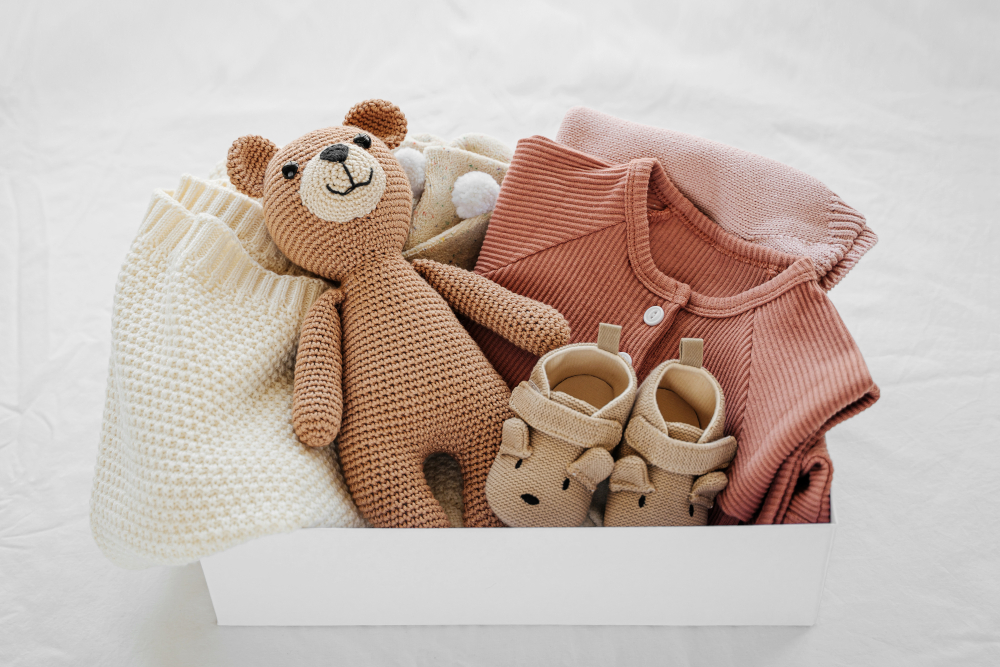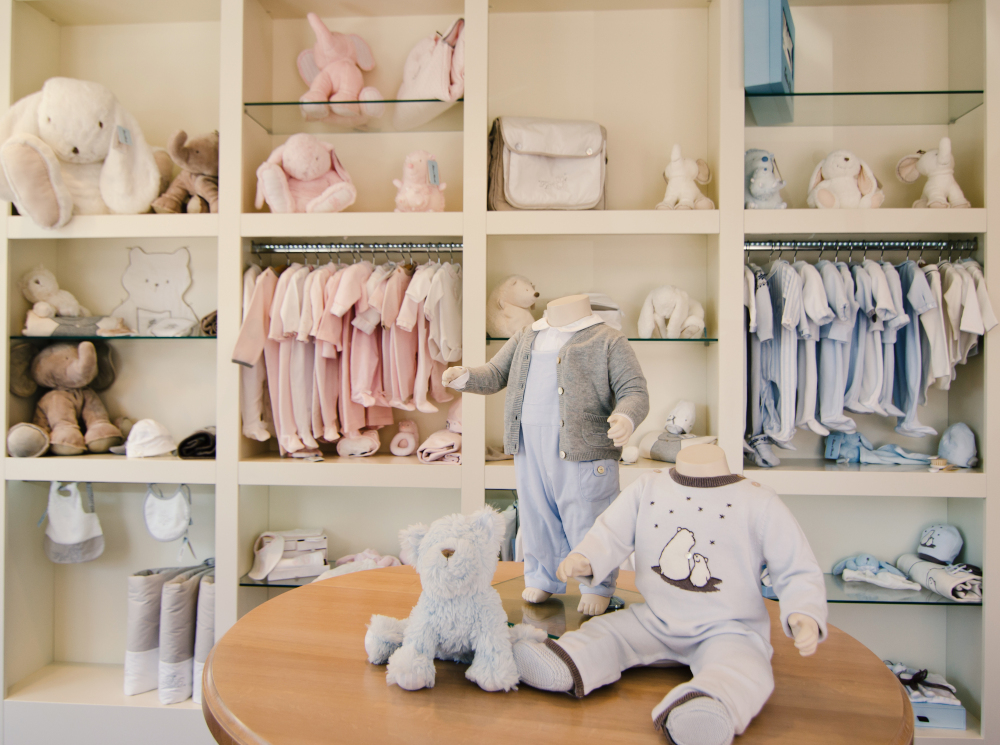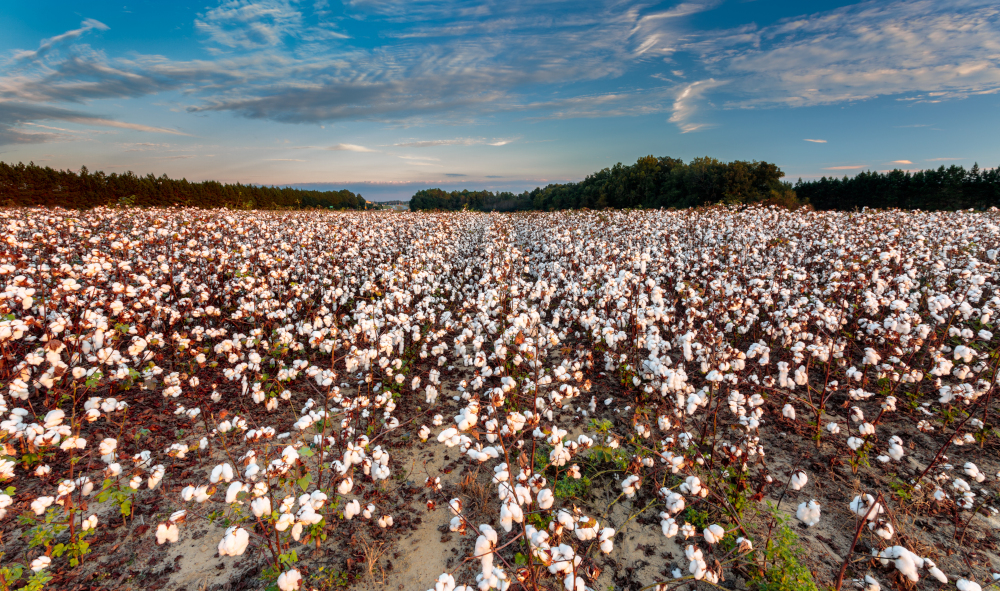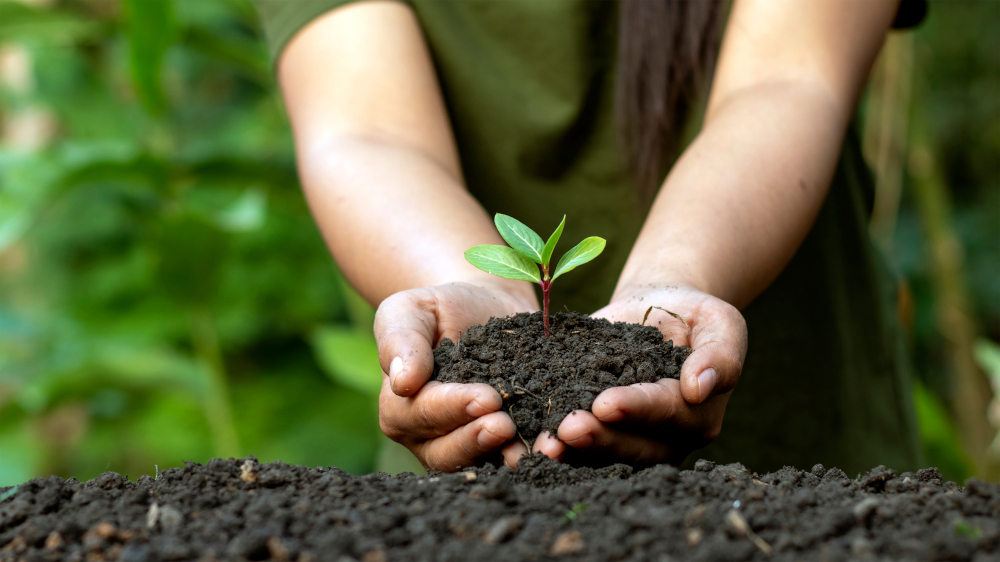In a world where sustainability is at the forefront of our choices, we're increasingly seeking eco-friendly options for our lifestyles. When it comes to dressing our little ones, organic baby knitwear is a beautiful way to blend style and sustainability.
In this blog post, we'll delve into the environmental benefits of choosing sustainable, organic materials for baby knitwear and how conscious consumer choices in baby clothing can align with a greener future for our planet.

Before we explore the sustainable side of baby knitwear, it's important to recognise the environmental challenges associated with conventional baby clothing:
1. Pesticides and Chemicals:
Traditional cotton farming relies heavily on pesticides and chemicals, which can have detrimental effects on the environment, wildlife, and the health of those who come into contact with these substances.
2. Non-Renewable Resources:
Synthetic fibres, often used in conventional baby clothing, are derived from petroleum, a finite and non-renewable resource.
3. Fast Fashion and Disposable Culture:
Many baby garments are made to be cheap and disposable, contributing to the growing problem of textile waste.

Organic baby knitwear offers a sustainable alternative that not only benefits the environment but also provides numerous advantages for your baby:
1. Organic Materials:
Organic baby knits are crafted from natural, pesticide-free materials like organic cotton, bamboo, and hemp. These materials are grown without harmful chemicals, promoting soil health and preserving biodiversity.
2. Non-Toxic Dyes:
Organic baby knitwear is often dyed using natural or low-impact dyes, which are safer for both the environment and your baby's delicate skin.
3. Durability:
High-quality, organic knitwear is designed to withstand the wear and tear of active babies, reducing the need for frequent replacements and decreasing textile waste.
4. Ethical Production:
Many organic baby clothing brands prioritize ethical production practices, ensuring fair wages and safe working conditions for their workers.

Making sustainable choices for your baby's wardrobe is a meaningful step toward a greener future:
1. Invest in Quality:
Choose a few well-made, organic baby knitwear pieces that can be mixed and matched, rather than accumulating a large quantity of less sustainable items.
2. Embrace Second-Hand:
Consider buying or swapping gently used organic baby knits to extend their lifespan and reduce your carbon footprint.
3. Research Brands:
Look for reputable brands that place a strong emphasis on sustainability, organic materials, and ethical manufacturing practices.
4. DIY Knitting:
If you're crafty, consider learning to knit your baby's clothing. This not only allows for customisation but also ensures you know precisely what materials are used.
As conscientious parents, we have the power to make choices that positively impact the environment and lay the foundation for a sustainable future for our children. Opting for organic baby knitwear is a small but significant step in the right direction.
By supporting brands and practices that prioritise the planet, we can provide our little ones with clothing that not only keeps them cozy and stylish but also aligns with our commitment to sustainability.
Sustainable choices today will shape the world our children inherit tomorrow. By dressing our babies in organic knits, we're not only embracing a greener future but also setting an example for the next generation to prioritise eco-conscious living.
Let's wrap our babies in the warmth of sustainable style and work toward a more environmentally friendly world—one stitch at a time.

To fully embrace the sustainability of organic baby knitwear, it's important to consider how to care for these special garments. Here are some tips to help you make the most of your eco-friendly baby clothing:
1. Gentle Washing:
Use a mild, eco-friendly detergent when washing organic baby knits. Opt for cold or lukewarm water to save energy and preserve the integrity of the fibres.
2. Air Drying:
Line drying, or laying the knitwear flat to dry, is a gentle method that helps maintain the shape and quality of the garments while reducing energy consumption.
3. Repair and Reuse:
Rather than discarding damaged knits, consider repairing them. Learning basic mending techniques can extend the lifespan of your baby's clothing.
4. Pass It On:
Once your baby outgrows their knitwear, consider passing it on to friends or family or donating it to organisations that support sustainable practices. This not only reduces waste but also allows more families to benefit from eco-friendly clothing.
By choosing organic baby knitwear, you're not only providing the best for your child but also becoming a part of a global movement towards a greener future. Your conscious consumer choices send a powerful message to the fashion industry and inspire others to follow suit.
Share your journey with friends and family, educating them about the importance of sustainable choices. Encourage baby showers and gift-giving events to prioritise organic clothing options, spreading awareness and fostering a culture of sustainability.
Remember, the small steps we take today can lead to significant changes tomorrow. By dressing your baby in organic knitwear, you're not only wrapping them in comfort and style but also nurturing a planet where they can thrive. It's a beautiful way to bond with your little one and create a legacy of sustainability for generations to come.
In the grand tapestry of life, every stitch counts. Let's weave a greener, more sustainable future for our children, stitch by stitch and knit by knit.
Be the first to post comment!